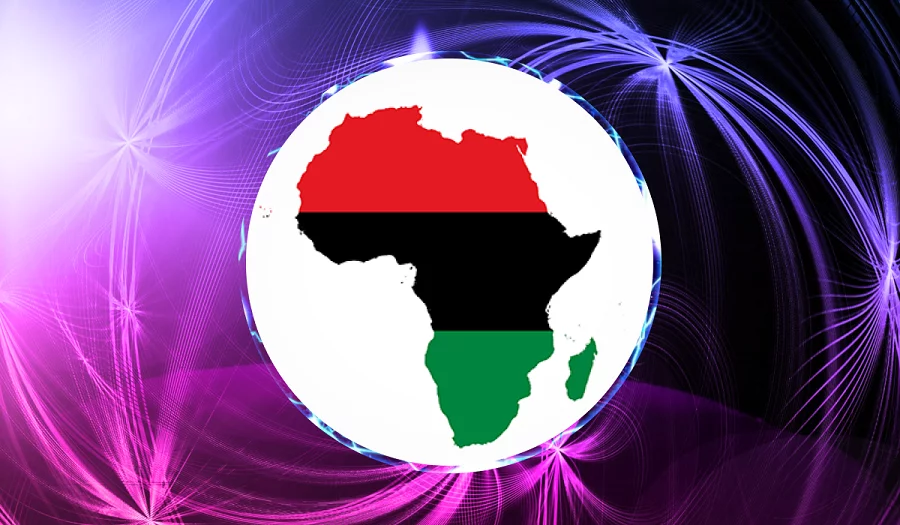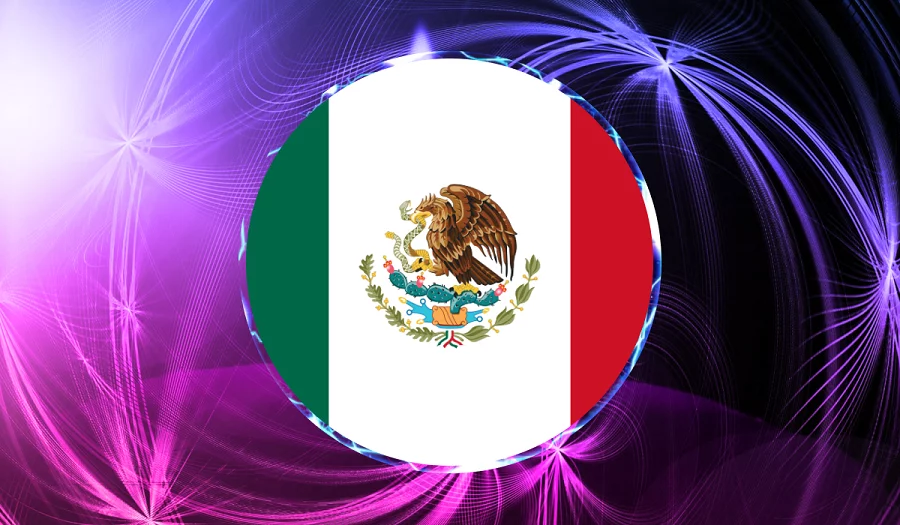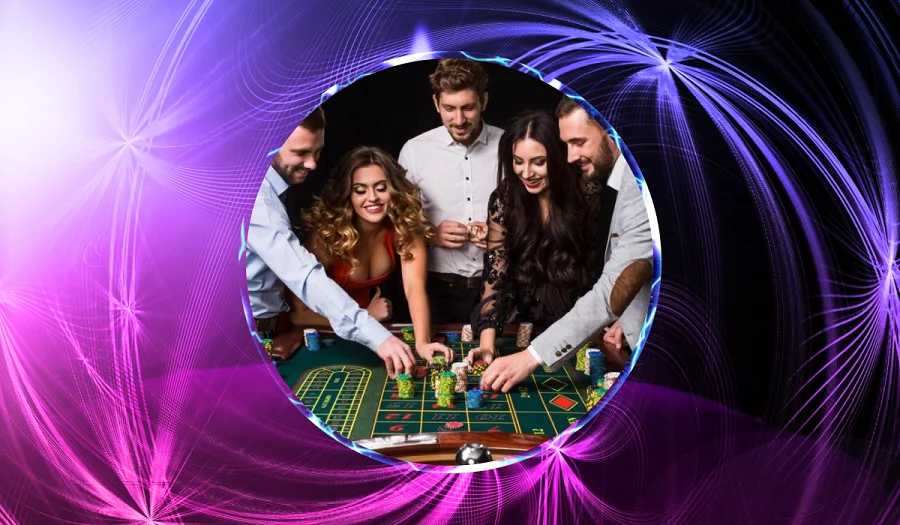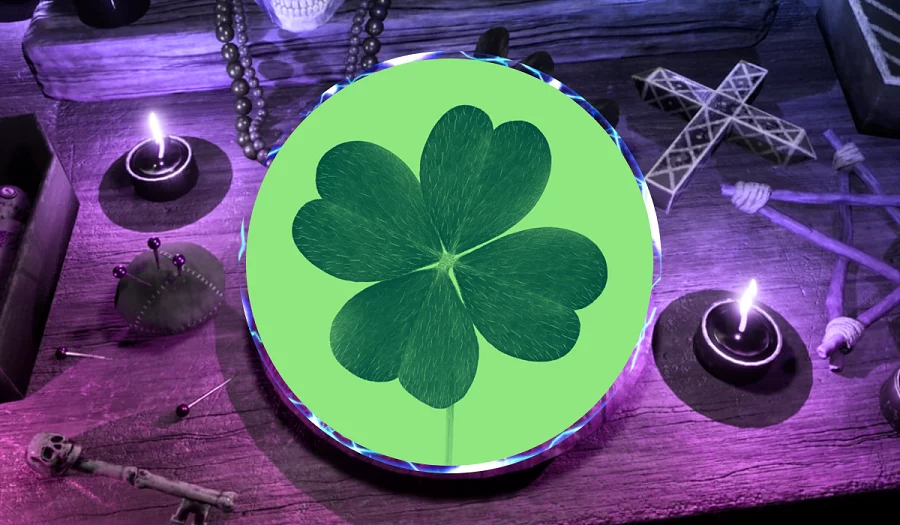When people gamble, they hope to win big and have fun. Sometimes, they believe in doing special things to bring them luck. These special things are called “good luck rituals for gambling.”
In this article, we’ll explore these interesting rituals – simple actions, beliefs, and traditions that gamblers use to try to get good luck. Whether you’re a pro player or just looking to improve your luck, keep reading to learn about these old customs. You might discover a secret that could help you win more the next time you play card games or spin the slot!
Page Contents
The power of rituals in gambling

Rituals are special actions or behaviors that people do for a specific purpose. In gambling, rituals are believed to bring good luck or better outcomes. They can be as simple as tapping the table or wearing a lucky charm.
Rituals in gambling are like little traditions that make the game more exciting. They might not guarantee a win, but if they add some fun and confidence to your gambling experience, why not give them a try?
Feeling lucky
Many gamblers think that certain rituals can change their luck. For example, some players have lucky clothing or a favorite seat at the casino. These things make them feel luckier, even if it’s not scientifically proven.
Psychological boost
Rituals can have a psychological effect. When you believe in a ritual, it can boost your confidence. Feeling confident can help you make better decisions while gambling.
Balancing act
While rituals can make gambling more fun, it’s essential to balance them with responsible gambling practices. Don’t rely solely on ceremonies to win, and always set limits on how much you’re willing to bet.
⭐ Best online casinos

- Available in most countries
- Slots and live casino games
- Rewarding weekly promos

- Zero wagering bonuses
- Fast & easy withdrawals
- Fair RTP in 6000+ games
Daily lucky ritual examples

Each day is filled with new possibilities, and some people like to kickstart their mornings with a little extra luck. They hold the belief that by following daily lucky rituals, they can enhance their chances of experiencing a fortunate day. These ceremonies can take many forms, but they all aim to draw positive energy and good fortune into their lives.
Whether or not you decide to incorporate these rituals into your daily routine is entirely your choice. Nevertheless, it’s important to remember that the power of belief and a positive outlook can significantly impact the course of your life, including gambling.
Morning affirmations and positivity
For many people, the day begins with affirmations or mantras. These are simple, uplifting phrases or words that are repeated to create a positive mindset for the day ahead. Expressions like “I am confident” or “Today is a lucky day” can help boost your spirits and invite good luck.
The influence of colors
Colors can have an effect on your emotions and energy levels. Some individuals opt to wear or surround themselves with specific colors that they associate with luck. For instance, in various cultures, the color red is often linked to good fortune.
The practice of mindful meditation
Meditation is a method for calming the mind and reducing stress. Commencing the day with a brief meditation session can foster inner peace and positivity, setting the stage for a potentially fortunate day.
Gratitude journaling
Maintaining a gratitude journal involves jotting down things you’re grateful for each day. This habit helps you concentrate on the positive aspects of your life and can potentially attract more good fortune by nurturing a sense of gratitude.
Spreading kindness
Engaging in random acts of kindness, such as assisting a neighbor or offering a colleague a compliment, can create a ripple effect of positivity in your life. Some people believe that kindness toward others can usher in luck and positive energy.
Nightly reflection
Wrap up your day by reflecting on your achievements and expressing gratitude for the positive moments. This reflection can reinforce feelings of luck and positivity in your life.
Rituals for specific games

Gambling is often seen as a blend of chance and strategy. While luck plays a significant role, many gamblers believe that certain rituals and customs can influence the outcome of their games.
These special practices are often tailored to specific gambling games, with the hope of improving one’s odds or enhancing the overall experience. Let’s explore some of these unique rituals associated with various popular casino games.
Poker: lucky card handling
Poker players are known for their superstitions. Many believe that how they handle their cards can impact the game. Some gamblers have specific rituals for shuffling and dealing cards, while others believe that blowing on their cards or tapping them a certain number of times can bring good luck.
Roulette: blowing on the wheel
In the game of roulette, where a ball spins around a wheel before landing on a number, players often have rituals associated with blowing on the wheel. They believe that this can influence where the ball lands, even though it’s ultimately a game of pure chance.
Slots: lucky coins and touching the screen
Slot machines are a favorite in casinos, and players have various rituals when it comes to these one-armed bandits. Some believe that inserting a lucky coin or rubbing the screen can improve their chances of hitting the jackpot.
Craps: dice-throwing rituals
Craps is a dice game with a rich tradition of dice-throwing rituals. Players often have specific ways of throwing the dice, believing that their technique can lead to better outcomes. Some even blow on the dice or kiss them for luck before tossing.
Blackjack: lucky seat and card tapping
In blackjack, players have rituals associated with their seats and the cards they’re dealt. Some believe that sitting in a specific seat at the table will bring them luck, while others tap their cards to signal they want another card without saying a word.
Baccarat: squeezing the cards
Baccarat players often have rituals related to how they squeeze or bend the cards. They believe that this can reveal the cards’ hidden luck and influence the game’s outcome.
Bingo: lucky charms and numbers
Bingo players often have lucky charms or specific numbers they prefer. Some even follow rituals like crossing their fingers when their favorite number is called, believing it will help them win.
Lottery: lucky numbers and special tickets
When playing the lottery, people often choose specific numbers or buy tickets from specific locations. They may also have rituals like rubbing the ticket before checking the numbers.
Horse racing: lucky horseshoes and pre-race rituals
In horse racing, rituals can extend to the treatment of the horses. Owners and jockeys may have pre-race routines and use lucky horseshoes or charms to bring good fortune to their steeds.
Top 10 rituals before and during the gambling session

Gambling, a pursuit entwined with chance and strategy, often finds itself accompanied by rituals believed to bring good fortune or enhance one’s focus.
From seasoned high-rollers to casual players, these ceremonies offer a sense of control in the face of uncertainty. Here are the top 10 rituals practiced before and during gambling sessions around the globe.
Lucky charms and amulets
Before hitting the casino floor, many gamblers carry lucky charms or amulets believed to attract positive energy and ward off bad luck. These can range from special coins to trinkets with personal significance.
Handwashing or cleansing
Some players practice handwashing rituals, often accompanied by specific prayers or chants, to cleanse themselves of negative energy and create a fresh start before a gambling session.
Consulting horoscopes or astrology
Many gamblers believe in the influence of celestial bodies. Consulting horoscopes or astrology charts is a ritual to determine auspicious times for gambling, making bets at what is perceived to be a lucky moment.
Prayers and offerings
In some cultures, gamblers offer prayers or make small offerings to deities or spirits associated with luck. These rituals are believed to invoke divine favor and protection during the gambling session.
Celebration of wins
When a gambler experiences a significant win, it’s customary to celebrate. This ritual can involve treating friends to a meal, donating to charity, or simply taking a moment to savor the victory.
Sound superstitions
The sounds of a casino can be overwhelming, but some gamblers have specific sound-related rituals. They might hum a lucky tune or listen for specific sounds that they associate with winning.
Mindful breathing and visualization
Practicing mindful breathing and visualization techniques help some gamblers relax and focus. Deep breaths and positive imagery create a calm mindset, aiding decision-making during the session.
Lucky food and drinks
Partaking in specific foods or drinks before or during a gambling session is a common ritual. For example, some players have a lucky meal they eat before heading to the casino, or they order a particular drink at the bar while playing.
Smudging or incense
Using smudging herbs like sage or burning incense is a cleansing ritual in some gambling cultures. The smoke is thought to clear negative energy and create a fresh and lucky atmosphere.
Post-game gratitudes
After the session, expressing gratitude for any winnings, regardless of the amount, is a common ritual. Some gamblers believe that expressing thanks for their luck will ensure it continues in future sessions.
Good luck rituals in different cultures

Good luck rituals, deeply rooted in tradition and belief, offer a fascinating glimpse into the diverse tapestry of human cultures around the world. These ceremonies are more than mere superstitions; they are a testament to the human desire to harness the powers of chance and fate.
Let’s embark on a journey across the globe to explore the rich and varied tapestry of good luck rituals, from ancient practices to contemporary customs, revealing the intriguing ways in which different cultures invite luck into their lives and endeavors.
Whether you seek to understand the rituals of your own culture or are intrigued by the traditions of others, this exploration promises a deeper appreciation of the universal desire for a touch of luck in our lives. You may also find some of the rituals useful to improve your luck in gambling.
Lucky Japanese rituals

Japan, a land steeped in ancient traditions and modern innovation, boasts a rich tapestry of rituals and customs aimed at inviting luck, prosperity, and positive energy into everyday life. These ceremonies, deeply rooted in Japanese culture, are a testament to the enduring belief in the power of tradition and the quest for good fortune.
Rituals of respect for nature
Japanese culture places a significant emphasis on respecting nature and the changing seasons. Rituals like Hanami (cherry blossom viewing) and Tsukimi (moon viewing) celebrate the beauty of nature and its cyclical patterns, invoking a sense of harmony and luck.
Rituals of purification
Cleansing rituals, known as misogi, are performed to purify the body and mind. These rituals are often observed before entering sacred spaces or embarking on new endeavors to ensure a clean and fortunate start.
Rituals of tea and etiquette
The traditional Japanese tea ceremony, known as Chanoyu, involves a series of precise and graceful rituals. These ceremonies emphasize respect, tranquility, and mindfulness, which are believed to bring good fortune and inner peace.
Rituals of perseverance
The practice of Ganbaru, which means to persevere or do one’s best, is a vital part of Japanese culture. It emphasizes hard work, determination, and resilience in the face of challenges, ultimately inviting success and good luck.
Rituals of ancestor veneration
Honoring ancestors is a significant part of Japanese culture. Rituals like Obon, a festival to remember and honor the deceased, are believed to bring blessings and good fortune from the ancestral spirits.
Lucky Egyptian rituals

Egypt, with its rich tapestry of history and culture, has been the cradle of civilization for millennia. Among its many treasures are the ancient rituals and customs that have endured through the ages.
In a modern world where ancient traditions meet contemporary life, these rituals continue to guide Egyptians in their pursuit of a blessed and prosperous existence.
Celebrating Sham El-Nessim
Sham El-Nessim is an ancient Egyptian spring festival that has been celebrated for over 4,500 years. Families gather for picnics and outings, and colored eggs, similar to those in Easter celebrations, are exchanged for good luck and prosperity.
The ritual of water
Water is considered a symbol of purity and life in Egyptian culture. Some people perform rituals involving water, such as washing their face and hands with it while reciting prayers for protection and good luck.
Offering to the Nile
The Nile River has been the lifeblood of Egypt for millennia. Some people offer small gifts or prayers to the river to show gratitude and seek blessings for a good harvest and prosperity.
Visiting sacred sites
Pilgrimages to sacred sites and ancient temples are common practices. These visits often involve making offerings and prayers to seek the favor of the gods and goddesses.
Lighting candles and incense
Candles and incense play a significant role in Egyptian rituals. Lighting them is believed to cleanse the surroundings, create a sacred atmosphere, and invite positive energies.
Lucky African rituals

Africa, a continent of remarkable diversity, is home to a myriad of cultures, each with its own unique set of beliefs, traditions, and rituals. These lucky African rituals offer a glimpse into the deep spirituality and cultural richness of the continent.
Let’s embark on a journey across Africa to explore the fascinating world of lucky African ceremonies, revealing the deep-rooted practices that continue to shape the lives and experiences of its people.
Ancestral blessings
In many African cultures, honoring one’s ancestors is of paramount importance. Rituals such as pouring libations, offering food and drink, or visiting ancestral gravesites are believed to invoke the blessings and protection of the departed loved ones.
Ritual drumming and dancing
Music and dance are integral to African cultures. Many rituals involve rhythmic drumming and spirited dancing, which are believed to attract positive energy, connect with the spiritual realm, and bring good fortune.
Herbal and medicinal rituals
African traditional healers, known as herbalists or sangomas, employ rituals involving the use of herbs, roots, and other natural remedies to cleanse negative energies, protect against illness, and invite good health and fortune.
The ritual of beadwork
Beadwork holds a significant place in many African cultures. Adorning oneself with beaded jewelry and clothing is believed to bring protection, good fortune, and a connection to one’s cultural heritage.
Naming ceremonies
Naming ceremonies are crucial in African cultures. Names often carry meanings and are believed to influence a person’s destiny. The choice of a name is seen as a ritual that invites luck and blessings.
Lucky Indian rituals

India, a country of immense diversity and rich cultural heritage, is a land where tradition and spirituality intermingle seamlessly. These lucky Indian rituals offer a glimpse into the deeply spiritual and culturally rich tapestry of the nation.
Puja and prayer
At the heart of Indian rituals lies puja, a form of worship and prayer. Individuals and families perform daily puja, seeking the blessings of deities like Lord Ganesha (the remover of obstacles) and Goddess Lakshmi (the goddess of wealth) to attract good fortune.
Breaking coconuts
Breaking coconuts as an offering at temples is a common ritual. It is believed to symbolize breaking away from obstacles and negativity, inviting blessings and good luck.
Tying red threads
Tying red threads, known as “mouli” or “kalava,” around the wrist is thought to provide protection from evil forces and invite blessings and good luck.
Light and fire rituals
The lighting of lamps and the ceremonial fire, as seen in rituals like the Aarti, are believed to dispel darkness and negativity, ushering in light, purity, and positive energy.
Astrological timing
In India, the timing of significant events, such as weddings or business ventures, is often determined by astrological calculations. Choosing an auspicious date and time is thought to ensure success and good luck.
Lucky Chinese rituals

China, a country steeped in ancient traditions and modern dynamism, boasts a rich heritage of rituals that are designed to invite good fortune, prosperity, and harmony into everyday life. These rituals, deeply rooted in Chinese culture, are a testament to the enduring belief in the power of tradition and the pursuit of good luck.
Chinese New Year traditions
Chinese New Year, also known as the Spring Festival, is a time for a multitude of lucky rituals. Cleaning one’s home to sweep away bad luck, lighting firecrackers to scare away evil spirits, and offering sacrifices to ancestors for blessings are some of the customary practices during this festive season.
Feng Shui practices
Feng Shui is the ancient Chinese practice of arranging the environment to promote harmony and balance. It involves positioning furniture, mirrors, and other objects to encourage positive energy flow and attract good fortune.
Dragon and lion dances
Dragon and lion dances are an integral part of Chinese celebrations. These colorful performances are believed to bring good luck, prosperity, and protection from negative forces.
Ancestor worship
Honoring ancestors is a significant aspect of Chinese culture. Families often set up ancestral altars and perform rituals to seek blessings and guidance from their departed loved ones.
The role of lucky bamboo
Lucky bamboo, a common houseplant, is believed to bring positive energy and good luck. Its various arrangements, often with specific numbers of stalks, are thought to have different meanings and attract different types of fortune.
Lucky Greek rituals

Greece, a land steeped in mythology, history, and a vibrant cultural heritage, is known not only for its picturesque landscapes but also for its rich tapestry of traditions and ceremonies.
These practices serve as a bridge between the past and the future, guiding the Greek people on their journey through life with faith, and the enduring belief in the power of rituals.
Greek Orthodox blessings
Many Greeks seek blessings from the Greek Orthodox Church. This includes blessing their homes with holy water and crosses to invite protection and divine favor.
Olive branches and wreaths
Olive trees are revered in Greece, and olive branches are often used to create wreaths and decorations. These symbols are believed to bring peace, prosperity, and good health.
Throwing rice and almonds
During weddings, it’s customary to throw rice and almonds at the newlyweds. These grains are believed to symbolize fertility, abundance, and a prosperous marriage.
Throwing coins into the sea
Visitors to Greece often engage in the practice of throwing coins into the sea while making a wish. It’s a symbolic gesture to invite good fortune and safe travels.
New Year’s traditions
As the clock strikes midnight on New Year’s Eve, Greeks have customs like smashing a pomegranate to release good fortune and prosperity. They also hang onions on their front doors to symbolize rebirth and new beginnings.
Lucky Korean rituals

Korea, a nation with a fascinating blend of ancient traditions and modern innovations, boasts a cultural heritage rich in rituals. These ceremonies, deeply rooted in Korean culture, reflect a profound connection to tradition and a timeless pursuit of fortune.
Seollal (Lunar New Year)
Seollal, the Korean Lunar New Year, is a time for numerous rituals aimed at inviting good fortune in the coming year. These include bowing to ancestors, playing traditional games like Yutnori, and eating traditional dishes for luck.
Pagoda rituals
In some Korean Buddhist temples, people perform rituals involving pagodas to receive blessings and protection. These rituals often include circumambulating pagodas while chanting prayers.
Ritual bowing (Jesa)
Jesa, the ritual of ancestor worship, includes bowing to ancestors and offering various foods and drinks. The order, number of bows, and offerings vary by region and family.
Ritual of Saju (Four pillars of destiny)
Saju is a traditional Korean astrological practice that analyzes one’s birth date and time to determine their destiny. It’s often consulted for major life decisions.
Ritual of the Doljabi
The Doljabi is a ceremony held on a child’s first birthday. Various items, such as money, a pen, or a thread, are laid out, and the child’s choice is believed to indicate their future interests and fortune.
Lucky Mexican rituals

The lucky Mexican rituals offer a glimpse into a culture that celebrates life, spirituality, and tradition. These colorful practices continue to shape the lives and experiences of the Mexican people.
Día de los Muertos (Day of the Dead)
Día de los Muertos, celebrated on November 1st and 2nd, is a time for honoring deceased loved ones. Families create ofrendas (altars) adorned with marigold flowers, sugar skulls, and the favorite foods of the departed. It is believed that these offerings help the spirits find their way home and bring blessings to the living.
The ritual of La Lotería
La Lotería is a traditional Mexican game similar to bingo. It is often played during celebrations and gatherings. Winning in La Lotería is considered lucky and is accompanied by shouts of “Lotería!” and cheerful celebrations.
The ritual of Cascarones
Cascarones are colorful, hollowed-out eggshells filled with confetti. They are used during celebrations, especially at Easter. Breaking a cascarón over someone’s head is believed to bring good luck and joy.
Limpia (Cleansing ritual)
Traditional healers in Mexico perform limpias, or cleansing rituals, to rid individuals of negative energies or curses. These ceremonies often involve the use of herbs, eggs, and prayers to purify the body and spirit.
Rituals of the Mayan calendar
In some regions of Mexico, particularly in the Yucatán Peninsula, Mayan rituals and ceremonies are still practiced. These ceremonies often revolve around the Mayan calendar and involve offerings to the gods for guidance and blessings.
Lucky American rituals

While the U.S. is known for its melting pot of cultures, it’s also home to a range of indigenous and regional practices that reflect the enduring belief in the power of tradition and the quest for good fortune.
New Year’s Eve celebrations
Americans often celebrate the New Year with lively parties, fireworks, and the tradition of watching the Times Square ball drop in New York City. Many believe that starting the year with joyful celebrations brings good luck.
Thanksgiving turkey wishbone
During Thanksgiving, Americans often pull apart the turkey’s wishbone. The person who gets the larger piece is believed to have their wish granted, bringing an element of luck to the holiday.
Crossing fingers for luck
Crossing one’s fingers is a common gesture when hoping for good luck or when making a wish. It’s often used in situations where luck is desired, such as before taking a test or awaiting news.
Wishing on a shooting star
When Americans spot a shooting star, it’s customary to make a wish. It’s believed that wishes made upon these fleeting celestial events are more likely to come true.
Birthday candle blowing
Blowing out birthday candles while making a wish is a common American tradition. It’s believed that if you can extinguish all the candles in one breath, your wish will come true.
Real-life gamblers who swear by rituals

These real-life gamblers and their rituals add an extra layer of fascination to the world of gambling. While skeptics might dismiss these practices as mere superstitions, for these individuals, rituals are an essential part of their gaming experience.
Whether it’s lucky charms, meditation, or wearing a specific item of clothing, these ceremonies provide comfort, confidence, and, in some cases, tangible results. Ultimately, in the unpredictable world of gambling, belief in these rituals serves as a unique and personal strategy for seeking out that elusive stroke of luck.
The lucky charm collector
Meet Joe, a seasoned poker player known for his impressive collection of lucky charms. Before each game, he meticulously arranges his lucky coins, trinkets, and even a rabbit’s foot on the table. Joe firmly believes that these charms channel good energy and help him make better decisions.
The ritual of the lucky seat
Linda, a regular at the slot machines, insists on sitting in the same seat each time she visits the casino. She claims that this particular seat has brought her the most luck over the years. If someone else is occupying it, she patiently waits until it becomes available.
The lucky attire gambler
Charlie, a blackjack enthusiast, swears by his “lucky” Hawaiian shirt. He believes that wearing it to the casino not only brings him good fortune but also distracts his opponents, making them underestimate his skills. Charlie’s ritual extends to washing the shirt only in a particular detergent and never letting it touch the ground.
The numerology enthusiast
Maria, a regular lottery player, practices numerology to select her numbers. She analyzes the date, time, and even her dreams to derive meaningful combinations. While it may seem unconventional, Maria has won several small prizes, reinforcing her belief in the power of numbers.
The ritual of meditation
John, a high-stakes poker player, incorporates meditation into his pre-game routine. He believes that calming his mind through meditation enhances his focus and intuition at the table. John’s opponents often remark on his Zen-like composure during intense games.
The gambler with lucky crystals
Sarah, a frequent visitor to the roulette wheel, carries a pouch of crystals with her. Before placing her bets, she arranges the crystals on the table in a specific pattern. She believes that the energy from these crystals influences the outcome of the spins.
The ritual of the lucky socks
Robert, a sports bettor, has a pair of socks that he deems “lucky.” He wears them exclusively when placing bets on his favorite teams. Even on the hottest days, Robert insists on wearing these socks, convinced that they bring him good luck.
The “knock on wood” gambler
Tina, an avid bingo player, has a habit of lightly tapping her knuckles on the wooden table after each number is called. She believes that this ritual ensures the numbers will continue to favor her throughout the game.
The lucky coin flipper
Mike, a casino regular, flips a coin before making any major gambling decision. He follows the outcome of the coin flip as if it were a decree from fate, believing that it guides him toward the right choices.
The ritual of the lucky dice
Dave, a craps enthusiast, brings his own set of dice to the casino. He has carefully marked them with symbols he believes are lucky. Rolling these dice, he says, ensures he’ll have a winning streak.


